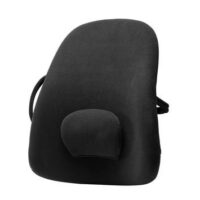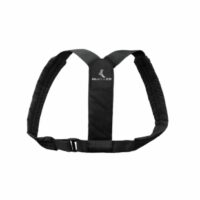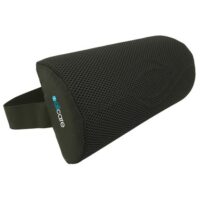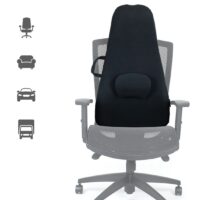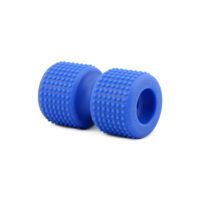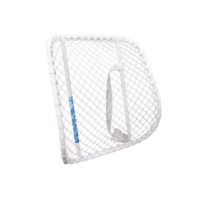Posture
Article by John Miller


Posture: A Key to Better Health and Confidence
What is Good Posture?
Good posture isn’t just about standing tall; it’s about aligning your body against gravity with minimal strain while standing or sitting. Training your body to maintain such positions not only improves your appearance and energy levels but also boosts confidence, prevents injuries, and alleviates pain.
Read more:
Steps to Enhance Posture
Improving posture requires altering habits ingrained in our muscle memory. Whether you’re sitting, standing, walking, or moving, your body follows these learned patterns. Thus, unlearning habits like slouching is crucial for posture correction.
Read more:

The Role of Posture Assessment
The journey to better posture begins with an assessment by a physiotherapist. They pinpoint posture deficits and develop a tailored, effective correction plan.
Key Strategies for Good Posture
Loosen Stiff Spinal Joints:
It’s vital to loosen stiff spinal joints for proper alignment.
Normalise Muscle Length:
Stretching and relaxing muscles is essential, as tight muscles impede good posture.
Build Muscle Strength:
Strong muscles are necessary to maintain correct posture. Targeted exercises can help here.
Boost Muscle Endurance:
Good posture requires muscles that can perform sustained work.
Maintain Normal Nerve Extensibility:
Ensuring your neural tissue is sufficiently flexible supports healthy posture. Avoid directly stretching nerves; consult a physiotherapist for safe methods.
Improve Spatial Awareness:
Knowing your body’s position in space is key. Your physiotherapist can provide feedback and tools like postural taping or braces.
Establishing New Habits:
The hardest part is the initial change. But once you establish correct habits, they become your new normal.
Posture Correction Tools
Your physiotherapist might suggest flexibility treatments, posture exercises, posture taping, or even a posture corrector brace to help retrain your muscles. Posture supports, like lumbar supports and rolls, are passive devices that provide a support system for maintaining proper posture, especially when sitting.
Read more:
Achieving Good Posture Quickly
Consult a physiotherapist to understand your unique posture style and get hands-on treatment, posture exercises, and product recommendations for improvement. Remember, it’s never too late to start, but changing old habits can be challenging.
Read more:
The Importance of Good Posture
Good posture is more than just looking confident. It’s crucial for overall health. Poor posture can lead to chronic pain, reduced lung capacity, and even digestive issues. Recent research highlights the link between posture and mental health, with improved posture leading to better mood and self-esteem.
Correcting Poor Posture
Addressing poor posture involves a multifaceted approach:
Posture Exercises:
Incorporating specific exercises like stretching, strengthening, and core workouts.
Ergonomics:
Adapting your work and living environments to support good posture. Read more: Ergonomics
Mindfulness:
Being aware of your posture throughout the day.
Regular Physiotherapy Sessions:
Professional guidance can accelerate your journey to better posture.
Conclusion: Your Posture Matters
Good posture is a fundamental aspect of your health and well-being. It’s not just about aesthetics; it’s about how your body functions and feels. By understanding the importance of posture and taking active steps to improve it, you’re investing in a healthier, more confident you.
Remember, improving your posture is a journey, and your physiotherapist is your ideal partner in this journey. They can provide personalised advice, corrective exercises, and support to help you achieve and maintain good posture.
For more information or to start your posture improvement journey, don’t hesitate to consult a physiotherapist. They’re equipped with the knowledge and tools to guide you towards better posture and, consequently, better health.
Article by John Miller
Posture FAQs: Your Guide to Better Posture
Welcome to your go-to resource for improving posture! Here, we'll tackle common posture-related queries, provide tips for enhancing it, and share insights on maintaining proper posture.
1. Discover Quick Posture Correction Techniques
Find out effective methods to quickly improve your posture and realign your body. Find ways to address long-term posture issues and learn the steps for gradual improvement.
Read more: Posture Correction
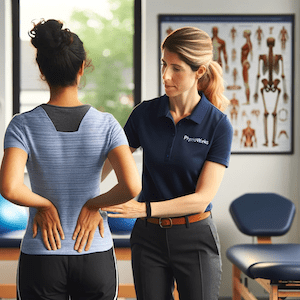

2. Understanding the Importance of Good Posture
Learn why maintaining good posture is crucial for your overall health and daily life.
Read more: What is Good Posture?
3. Sitting with the Right Posture
Learn the correct way to sit, incorporating ergonomic principles to support your spine and reduce strain.
Read more: Sitting Posture
4. Enhance Your Standing Posture
Explore the best techniques for maintaining an optimal standing posture, promoting balance and reducing muscle tension. Get tips and exercises to strengthen your muscles and improve your standing posture over time.
Read more: Standing Posture
5. Sleeping Postures for a Healthier You
Discover the healthiest sleeping positions to prevent discomfort and support your spine during sleep.
Read more: Sleeping Posture
6. Products for Better Posture
Browse products designed to assist in maintaining proper posture in your daily activities.
Read more: Posture Products
7. Demystifying Posture Trainers
Understand if posture trainers are effective for enhancing your posture and improving body alignment.
Read more: Posture Trainers
8. Understanding and Improving Back Posture
Learn how to identify and correct common issues with back posture to prevent pain and discomfort.
Read more: Back Posture
9. Addressing Neck Posture for Better Health
Discover techniques and tips for maintaining proper neck posture, crucial for avoiding strain and tension.
Read more: Neck Posture
10. Overcoming Bad Posture
Identify bad posture habits and learn strategies to correct them, promoting better alignment and health.
Read more: Reversing Bad Posture
11. Effective Posture Exercises
Explore exercises specifically designed to improve posture, strengthen muscles, and promote alignment.
Read more: Posture Exercises
12. Seek Professional Guidance
Sometime some professional guidance from a healthcare professional with training in posture assessment and correction is just what you need to get you started. If needed, please book a posture assessment with one of our posture physiotherapists to fast-track your posture correction. By applying our advice, you're on the path to a healthier, more confident version of yourself!



